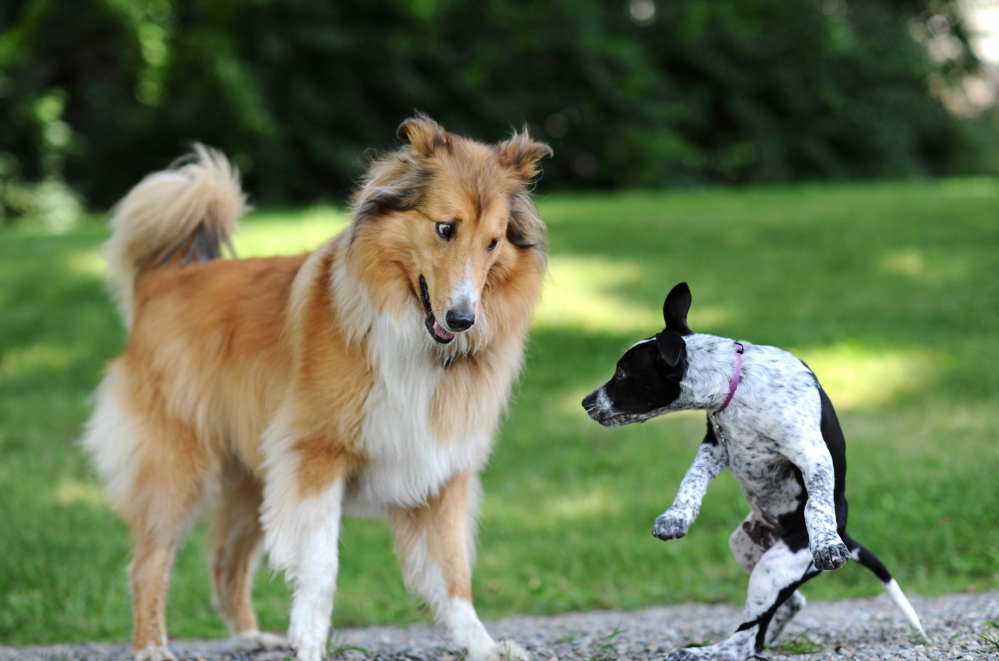Your dog wants all of your attention (and it’s never enough!) but can she feel jealousy? The answer seems to be yes, according to a new study published Wednesday in PLOS ONE. The findings may not surprise dog owners, but they mark an important shift in the way scientists study jealousy – which remains one of humanity’s most baffling emotions.
Study author Christine Harris, a professor of psychology at the University of California, San Diego, was visiting her parents and their three border collies when the idea for the study came to her. “I’d pet two of them at a time,” she said, “and it wouldn’t have been surprising if that had made the third want my attention, too.” But what intrigued her was that the two dogs being attended to would show aggression to one another. One dog would knock her hand away from the other, so it was the sole object of affection. “To me,” she said, “That really fit with the core motivation of jealousy.”
In her study, Harris had dog owners devote attention to a picture book (which they read aloud), a toy dog that moved and barked, and an object their dog had never seen before – a Halloween candy bucket. Both the toy dog and the bucket were treated like dogs, and the owners pet them and talked to them the way they would their own animal. The dogs reacted the least to the book, and had the most negative response when their owners appeared to be coddling a fellow animal. To Harris, this suggests a basic instinct to express displeasure – or even act out violently – when a rival is seen receiving attention, even if the dog is otherwise happy to be ignored.
This study was small, using only 36 dogs. But Harris thinks that it’s important to get to the root of jealousy. “It suggests to me that some of our ideas about the nature of jealousy, like that it requires complex cognition, are incorrect,” Harris said.
Texas Tech University professor Sybil Hart, who studies infant jealousy and wasn’t involved in the study, agreed. “Until recently, almost all the research on jealousy had to do with sexual jealousy in adults, and even that was mostly looking at men,” Hart said. But now, researchers are asking how jealousy evolved, she said. Her work, which performs similar experiments to Harris’s but on infant humans, also suggests a more basic, primordial root for the emotion.
“It’s that very basic response of, ‘but that’s my mommy’s lap,'” Hart said. “Seeing how jealousy develops is important,” she said, “because it’s hard to understand anything in adults without knowing how it got there.” And once we understand what baseline of jealousy is basic animal instinct, Hart said, we can decide what aspects of jealousy are unhealthy and can be fought back. Study author Harris agreed.
“Jealousy has tremendous human consequences,” Harris said. “And for adult humans it’s very complex.”
But you don’t need higher cognition to get green-eyed. “These results suggest,” Harris said, “that all of that isn’t required. All you need is a loved one and a rival.”
Send questions/comments to the editors.



Success. Please wait for the page to reload. If the page does not reload within 5 seconds, please refresh the page.
Enter your email and password to access comments.
Hi, to comment on stories you must . This profile is in addition to your subscription and website login.
Already have a commenting profile? .
Invalid username/password.
Please check your email to confirm and complete your registration.
Only subscribers are eligible to post comments. Please subscribe or login first for digital access. Here’s why.
Use the form below to reset your password. When you've submitted your account email, we will send an email with a reset code.